ARTICLE AD BOX
18 minutes ago
By Phelan Chatterjee, BBC News

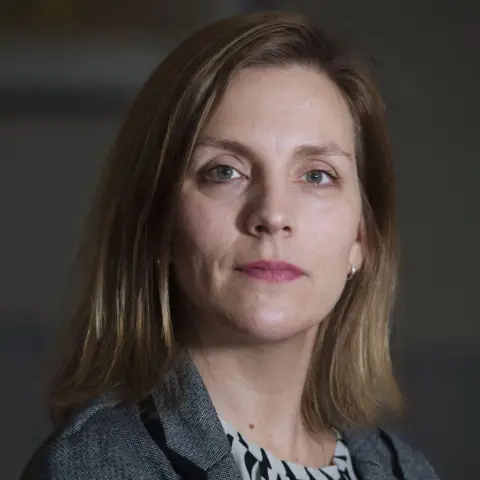 Alamy
Alamy
Swedish human rights activist Anna Ardin is glad Julian Assange is free.
But the claims she has made about him suggest she would have every reason not to wish him well.
She is one of two women who accused the WikiLeaks founder of sexual assault 14 years ago.
The allegations - which Assange has always denied - were explosive, and made headlines across the world. They set off a chain of events which saw him trying to avoid extradition to Sweden by seeking asylum in a London embassy for seven years.
In 2019 the Swedish authorities ended their investigation into Assange and dropped their extradition bid. However, he spent the next five years in a British prison fighting extraditon to the US, where he faced prosecution over massive leaks of confidential information.
These include US army footage showing Iraqi civilians being killed, and documents suggesting the US military killed hundreds of Afghan civilians in unreported incidents.
Assange was eventually freed last month, after a plea deal with the US.
Ardin is fiercely proud of Assange's work for WikiLeaks, and insists that it should never have landed him behind bars.
“We have the right to know about the wars that are fought in our name,” she says.
“I’m sincerely happy for him and his family, that they can be together. The punishment he’s got has been very unproportionate.”
Speaking to Ardin over Zoom in Stockholm, it quickly becomes clear that she has no problem keeping what she sees as the two Assanges apart in her head - the visionary activist and the man who she says does not treat women well.
She is at pains to describe him neither as a hero nor a monster, but a complicated man.
The 45-year-old activist is also a Christian deacon, with a belief in forgiveness, and she uses the words "truth" and "transparency" again and again throughout the interview. It might explain why she is in awe of what WikiLeaks accomplished but, at the same time, bitterly disappointed that the assault allegations she made against Assange were never formally tested.
Ardin describes her encounter with Assange in her book, No Heroes, No Monsters: What I Learned Being The Most Hated Woman On The Internet.
In 2010, just three weeks after WikiLeaks’ release of the Afghan war logs, she invited him to Stockholm to take part in a seminar organised by the religious wing of Sweden’s Social Democrats.
Assange did not want to stay at a hotel for security reasons and Ardin was due to be away, so she offered him her flat. But she returned early.
After an evening of discussing politics and human rights, they ended up having what she describes as uncomfortable sex during which she says he humiliated her.
Ardin says she agreed to have sex with Assange as long as he used a condom, but the condom broke and he continued.
Ardin suspects he broke it deliberately. If this was the case, he probably would have committed an offence under Swedish law.
Later, Ardin writes that she heard from another woman - named in legal papers as SW - who had attended the seminar. SW apparently said that Assange had penetrated her without her consent when she was asleep.
In a 2016 statement to Swedish prosecutors, Assange maintained that his sexual relationship with SW was entirely consensual, and that in texts seen by his lawyers, she had admitted to a friend that she had not been asleep, as claimed.
Both women filed police reports - Ardin's case was categorised as alleged sexual misconduct, and SW's as alleged rape.
The press got hold of the reports, setting off an extraordinary series of events.

 Getty Images
Getty Images
Julian Assange in 2010, addressing a conference in Geneva
Assange denied the allegations, and suggested that they were a US set-up. WikiLeaks had just leaked 76,000 US military documents - sparking massive global attention and scrutiny of US foreign policy.
On 21 August, 2010, WikiLeaks tweeted: “We were warned to expect ‘dirty tricks’. Now we have the first one.”
Another post followed the next day: “Reminder: US intelligence planned to destroy WikiLeaks as far back as 2008.”
Assange’s UK lawyer Mark Stephens claimed that a “honeytrap” had been sprung and that “dark forces” were at work.
A social media furore erupted which Ardin describes as “hell” – she tells me the amount of harassment and death threats forced her to leave Sweden at one point.
“I couldn’t work. My life passed me by for two years.”
To this day, many believe Ardin is part of a US conspiracy, and that her allegations are false. Greece’s former Finance Minister, Yanis Varoufakis, a long-time supporter of Assange, last week described her claims as “mud” and “innuendo”.
No evidence has ever been found to link Ardin with US intelligence. She concedes that the narratives spread by Assange had an air of plausibility, because he had been “messing with the Pentagon”, but says the claims were nothing but “lies” and a “smear campaign”.

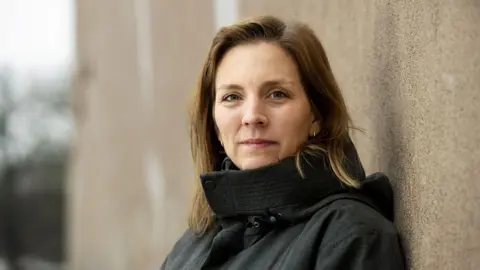 Alamy
Alamy
Anna Ardin in Stockholm in 2021
Months after the incidents, an international arrest warrant was issued for Assange, who was in London at that point.
In December 2010, he admitted to the BBC that it was “not probable” he was part of a classic honey-trap operation - but he still denied any wrongdoing.
Assange was convinced that if he went to Sweden he would then be extradited to the US - where he feared the death penalty awaited. In 2012, he took refuge in the Ecuadorean embassy in London.
Sweden refused to guarantee he would not be extradited to the US, but said any move to do so would need to be approved by the UK too. Both countries also said they would not extradite him if they thought he might face the death penalty.
In 2015, Swedish prosecutors dropped the investigation into Ardin’s allegations as time had run out.
In 2019, prosecutors abandoned their investigation into SW's claims, saying the evidence had “weakened considerably due to the long period of time since the events in question”.
By this time, Assange was being held in London’s high-security Belmarsh prison, facing extradition to the US on espionage charges. If convicted there, he could have faced 170 years behind bars.
Assange finally won his freedom in 2024, after agreeing to plead guilty to a single charge under the US Espionage Act.

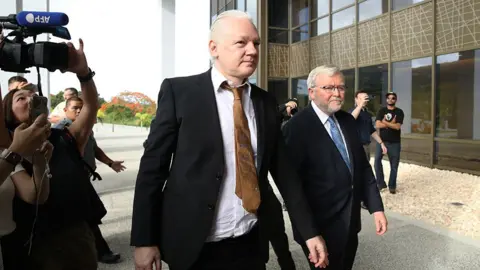 Getty Images
Getty Images
June 2024: Assange is freed after appearing at a US court in the Northern Mariana Islands
Ardin still wishes he had faced trial for the alleged assault against her. “But he won’t. So I have to let it go.”
She says some of her doubters don’t take her seriously because they don’t think the details of her experience, or reaction, were dramatic enough.
She suggests there’s an expectation of sexual assault to always be brutal, involve a lot of violence, and leave the victim heavily traumatised - and if that doesn’t happen you can’t be a real victim, or a real offender.
But that doesn’t align with what Ardin describes as the reality of her experience. She stresses that doesn’t make it any less serious or unacceptable.
She slams many of his supporters - and journalists - for seeking a “one-sided narrative” which turns him into a hero, and her into an evil CIA agent.
“I think that we have a problem that we have to have these heroes that are flawless… I don’t think heroes exist outside fairytales.”
Ardin says her intention was never to write off Assange as a one-dimensional villain, to be “kicked out of society”.
Offenders are seen as “monsters, completely different from all other men", she says. And this means the “system goes on”, she argues, as “normal” men don’t realise that they, too, can be prone to violence - so they don’t interrogate themselves.
“I want him to be seen as a normal guy. That's what normal guys do sometimes. They cross other people's boundaries.”
She thinks that progressive movements often have problems calling out leaders, fearing any criticism delegitimises the entire cause: “You can't be a leader and abuse the people who are active in your movement, because the movement will not survive.”
People should not be able to get away with sexual crimes, or any crimes just because they’re influential, she adds.
The BBC contacted Assange's lawyers for comment on the claims repeated by Ardin in our interview with her, but they said he was "not in a position to respond".

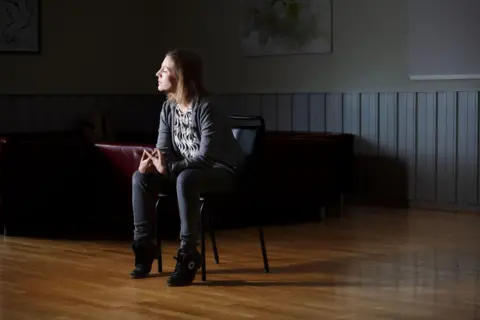 Alamy
Alamy
Anna Ardin: “[Julian Assange] has to reflect on what he did.”
I ask what justice would have looked like for her at the end of this saga.
Ardin tells me she is only interested in getting to what she describes as the truth. She is less interested in punishment.
“Justice for me would have been to have transparency. I was not happy that he was locked up because he was [locked up] for the wrong reason.”
Ardin is a left-wing Christian who attaches great importance to reconciliation and transformation.
But for that to be possible, she says that perpetrators need to own up and genuinely commit to change.
After all this contemplation, I wonder what she would say to Assange, if face to face with him now.
Ardin tells me she would urge him to work on himself.
She would ask him to admit that he “did not have the right to do what he did to me, and he doesn’t have that right towards other women either".
“He has to admit that for himself … He has to reflect on what he did.”
If you've been affected by the issues in this story, help and support is available via the BBC Action Line

 4 months ago
31
4 months ago
31
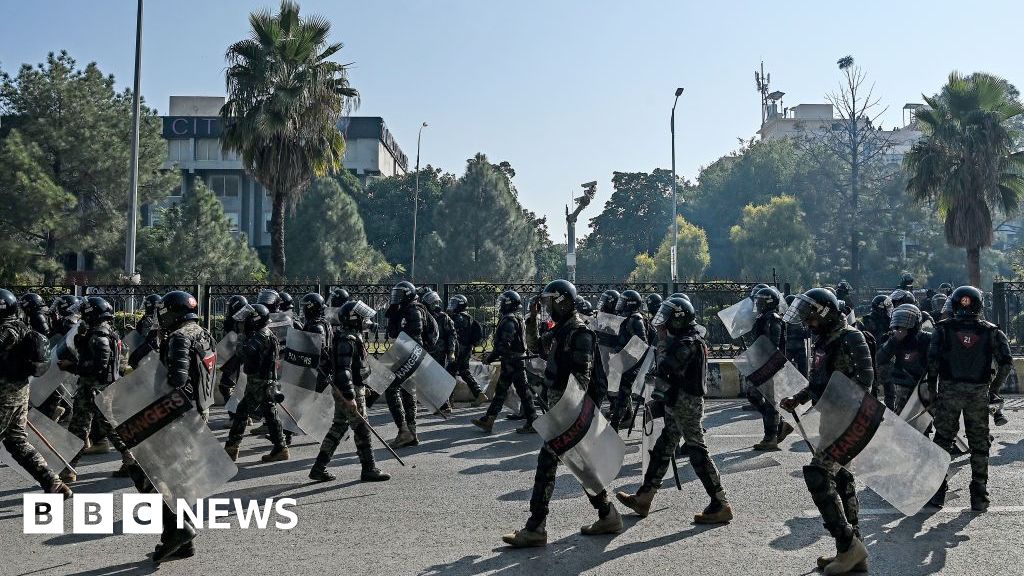
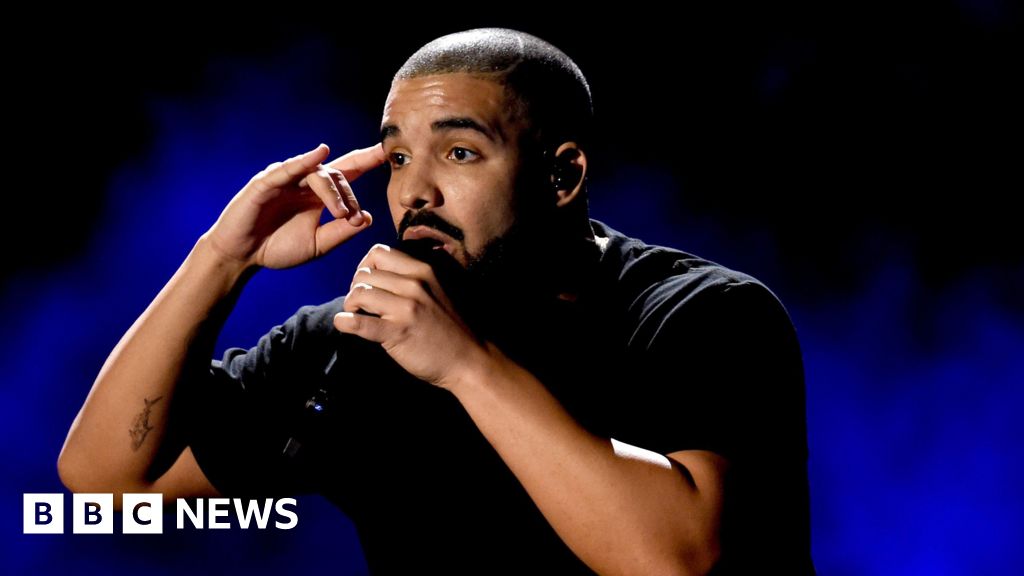
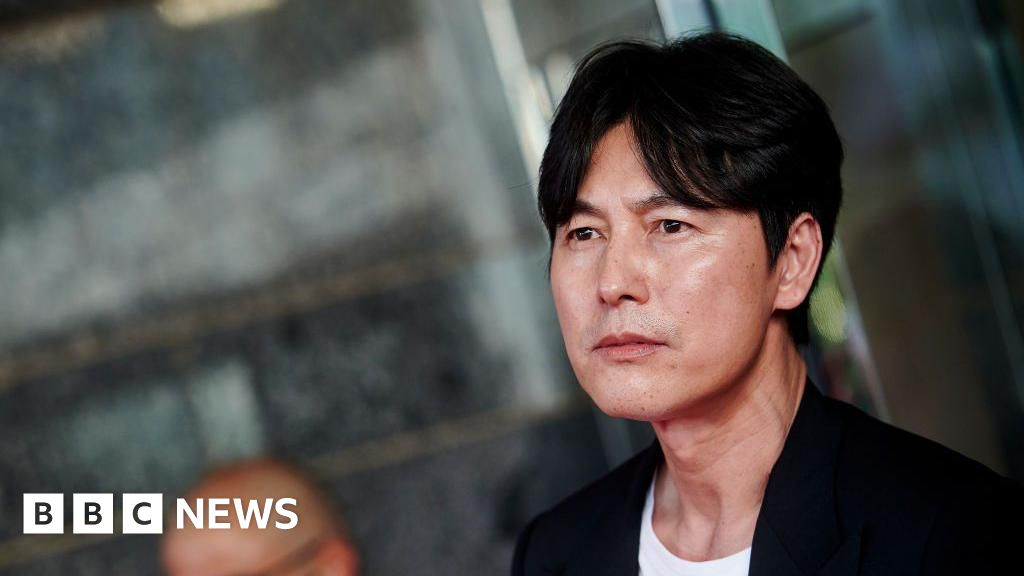





 English (US)
English (US)